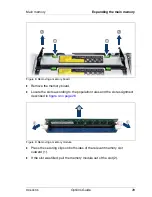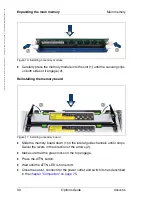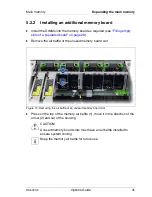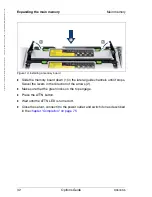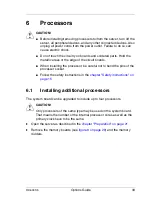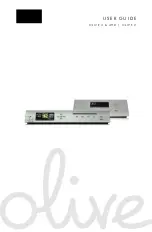
18
Options Guide
RX600
S5
Safety instructions
©
c
ogn
it
as
.
G
e
s
e
lls
c
h
ft
f
ü
r T
e
c
h
ni
k
-D
o
k
u
m
e
n
tat
ion m
b
H
20
10
P
fa
d
:
C
:\
P
rogra
m
m
e
\F
CT
\t
im
_a
pp
\t
im
_l
o
c
a
l\
w
or
k
\P
ICH
OL
\O
B
J
_
D
O
K
U
-4
8
7
1
-0
01
.f
m
Working with CDs/DVDs/BDs and optical drives
When working with devices with optical drives, these instructions must be
followed.
V
CAUTION!
●
Only use CDs/DVDs/BDs that are in perfect condition, in order to
prevent data loss, equipment damage and injury.
●
Check each CD/DVD/BD for damage, cracks, breakages etc. before
inserting it in the drive.
Note that any additional labels applied may change the mechanical
properties of a CD/DVD/BD and cause imbalance.
Damaged and imbalanced CDs/DVDs/BDs can break at high drive
speeds (data loss).
Under certain circumstances, sharp CD/DVD/BD fragments can
pierce the cover of the optical drive (equipment damage) and can fly
out of the device (danger of injury, particularly to uncovered body
parts such as the face or neck).
●
High humidity and airborne dust levels are to be avoided. Electric
shocks and/or server failures may be caused by liquids such as water,
or metallic items, such as paper clips, entering a drive.
●
Shocks and vibrations are also to be avoided.
●
Do not insert any objects other than the specified CDs/DVDs/BDs.
●
Do not pull on, press hard, or otherwise handle the CD/DVD/BD tray
roughly.
●
Do not disassemble the optical drive.
●
Before use, clean the optical disk tray using a soft, dry cloth.
●
As a precaution, remove disks from the optical drive when the drive
is not to be used for a long time. Keep the optical disk tray closed to
prevent foreign matter, such as dust, from entering the optical drive.
●
Hold CDs/DVDs/BDs by their edges to avoid contact with the disk
surface.


























